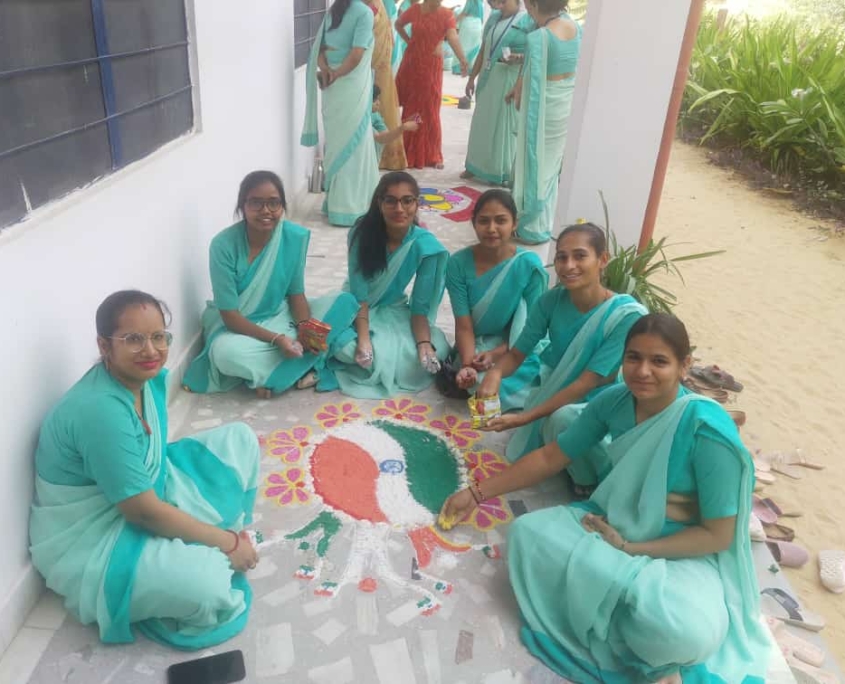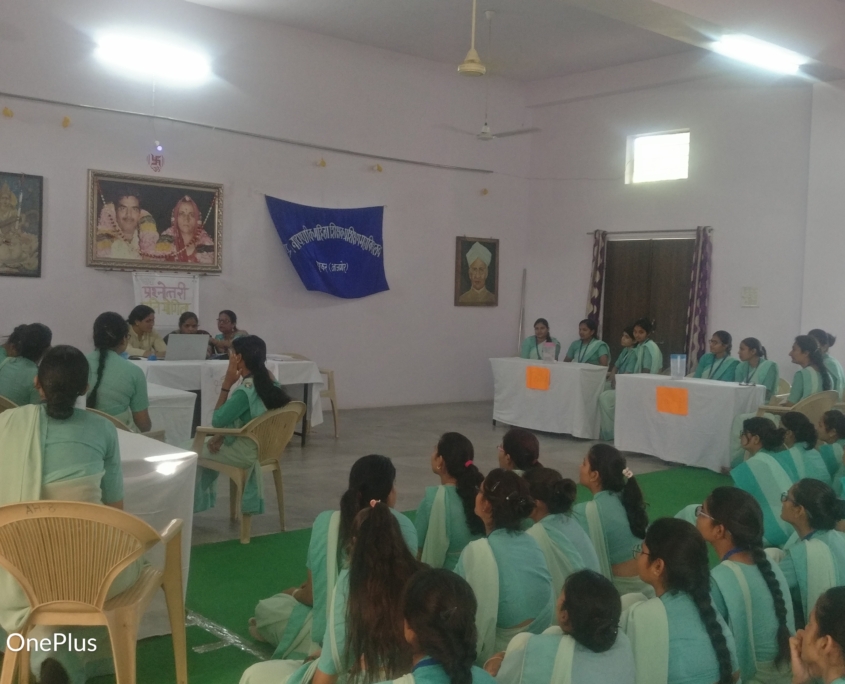Events
We not only prepare teachers we make Educators for tomorrow.
Co-Curricular Activities in B.Ed. College: Enhancing Teacher Education
Co-curricular activities (CCA) play a pivotal role in the holistic development of students in a Bachelor of Education (B.Ed.) college. These activities complement the academic curriculum and provide future educators with essential skills and experiences that are crucial for their professional and personal growth.
Importance of CCA in B.Ed. Colleges: Co-curricular activities bridge the gap between theoretical knowledge and practical application. They help in developing various soft skills such as leadership, teamwork, communication, and time management, which are indispensable for teachers. Participating in CCA also nurtures creativity and critical thinking, preparing B.Ed. students to create dynamic and engaging classroom environments.
Types of Co-Curricular Activities:
- Workshops and Seminars: Regular workshops and seminars on contemporary educational practices and innovations enhance the knowledge and skills of B.Ed. students.
- Teaching Practice: Engaging in teaching practice sessions allows students to gain hands-on experience and apply their theoretical knowledge in real classroom settings.
- Educational Trips and Excursions: These activities provide exposure to different educational environments and teaching methodologies, broadening the students’ perspectives.
- Cultural and Literary Events: Participation in cultural programs, debates, and literary competitions fosters creativity and communication skills.
- Sports and Physical Activities: Involvement in sports helps in maintaining physical health and teaches the importance of discipline and teamwork.
- Saturday Activities: Involves games, debate, art & craft etc.
Benefits of CCA for Future Teachers:
- Skill Development: CCAs enhance various soft skills essential for effective teaching.
- Confidence Building: By participating in different activities, students build self-confidence and public speaking abilities.
- Real-World Experience: Practical experiences gained through CCAs prepare students for real-world teaching challenges.
- Networking Opportunities: CCAs provide a platform for students to interact with peers, educators, and professionals, creating valuable networks.
We not only prepare teachers we make Educators for tomorrow.
Co-Curricular Activities in B.Ed. College: Enhancing Teacher Education
Co-curricular activities (CCA) play a pivotal role in the holistic development of students in a Bachelor of Education (B.Ed.) college. These activities complement the academic curriculum and provide future educators with essential skills and experiences that are crucial for their professional and personal growth.
Importance of CCA in B.Ed. Colleges: Co-curricular activities bridge the gap between theoretical knowledge and practical application. They help in developing various soft skills such as leadership, teamwork, communication, and time management, which are indispensable for teachers. Participating in CCA also nurtures creativity and critical thinking, preparing B.Ed. students to create dynamic and engaging classroom environments.
Types of Co-Curricular Activities:
- Workshops and Seminars: Regular workshops and seminars on contemporary educational practices and innovations enhance the knowledge and skills of B.Ed. students.
- Teaching Practice: Engaging in teaching practice sessions allows students to gain hands-on experience and apply their theoretical knowledge in real classroom settings.
- Educational Trips and Excursions: These activities provide exposure to different educational environments and teaching methodologies, broadening the students’ perspectives.
- Cultural and Literary Events: Participation in cultural programs, debates, and literary competitions fosters creativity and communication skills.
- Sports and Physical Activities: Involvement in sports helps in maintaining physical health and teaches the importance of discipline and teamwork.
- Saturday Activities: Involves games, debate, art & craft etc.
Benefits of CCA for Future Teachers:
- Skill Development: CCAs enhance various soft skills essential for effective teaching.
- Confidence Building: By participating in different activities, students build self-confidence and public speaking abilities.
- Real-World Experience: Practical experiences gained through CCAs prepare students for real-world teaching challenges.
- Networking Opportunities: CCAs provide a platform for students to interact with peers, educators, and professionals, creating valuable networks.












